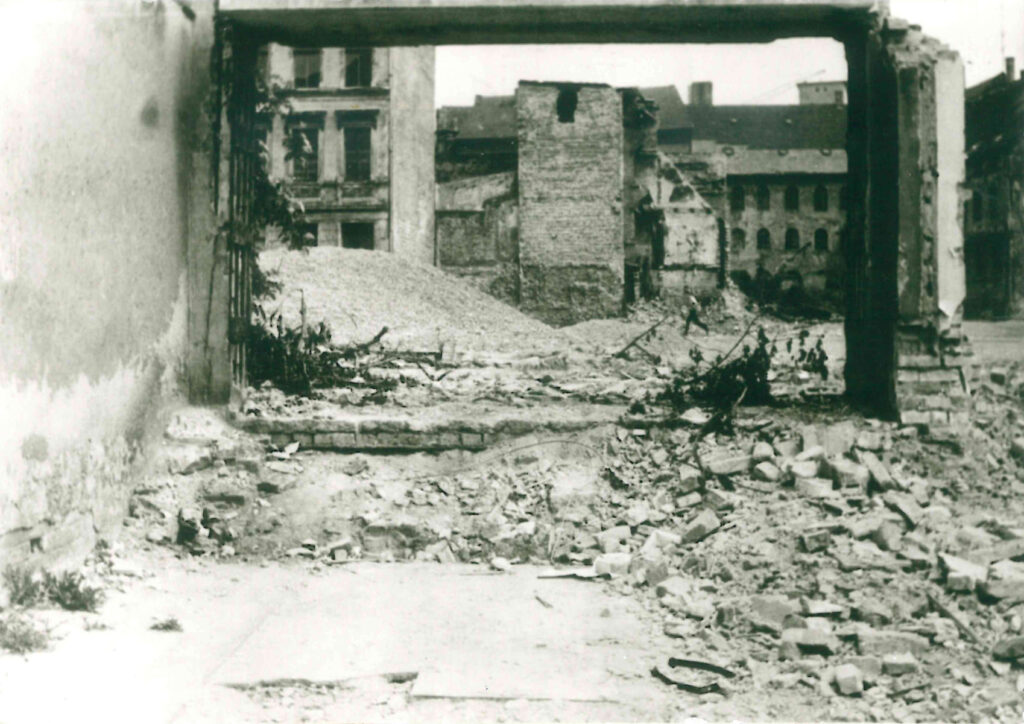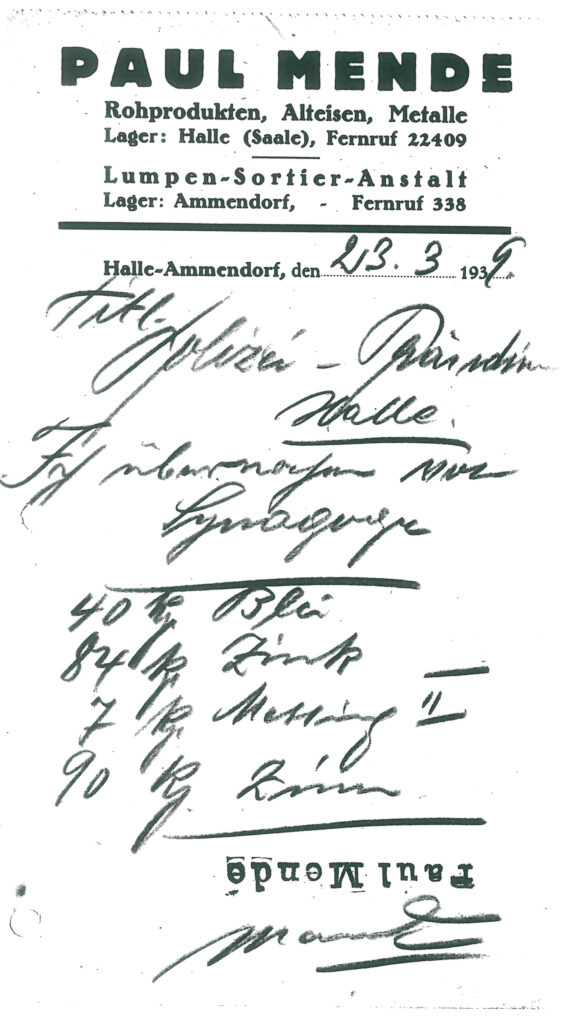The exclusion, persecution, and expulsion of the Jewish community in Halle began even before the National Socialists seized power. Days before the “Reich-wide” boycott, Jewish stores, practices, and apartments were already being destroyed and looted here.
Whereas, before 1933, many Jews in Halle often only visited the synagogue on high holidays, it now once again increasingly became a place of refuge for the religious community. The last bar mitzvah celebration took place here in 1937. During the pogrom night of November 9 to 10, 1938, the synagogue and community center in Halle were stormed, looted, and burned down. Numerous male community members were interned in the Buchenwald and Sachsenhausen concentration camps. The synagogue, which was completely destroyed by arson, had to be completely demolished down to the foundation walls by order of the city administration at the community’s expense. The old Jewish cemetery on Töpferplan also had to be cleared by the Jewish community. Almost 400 gravestones were brought to the new cemetery on Boelckestrasse (today Dessauer Strasse) by members of the community, some of them with hand carts. The mourning hall there was initially converted into a “repatriation camp” for Jews from the Saar region, the Palatinate, and Baden. The war was already raging on the western border of the German Reich, which is why the National Socialists “evacuated” the Jewish population living there to safe areas for the time being, in order to bring them back home later. After returning to their homeland, however, the Jews often expected to be deported.
The mourning hall also served as a “home for the elderly and infirm.” In reality, it was a collection camp for deportations to the death camps. Later in the war, the building was used as a residential and labor camp and as a collection camp for so-called “Jewish half-breeds.”
Between 1942 and 1945, a total of six transports with Jewish children, women, and men were sent to the extermination camps. Over 300 Jewish women from Halle lost their lives in the concentration and labor camps of the Nazi regime.
Today, the building is once again used as a mourning hall by the Jewish community. Adjacent to it is the present Jewish cemetery.

Left: Structural remains of the entrance to the synagogue at Großer Berlin in the early 1960s (state after its destruction in 1938). Photographer unknown. Halle City Museum.
Right: Confirmation of the takeover of lead, zinc, brass and tin from the synagogue destroyed in the pogrom night of 1938. The Paul Mende company took over the material on March 23, 1939. Halle City Museum (Gudrun Goeseke estate)

